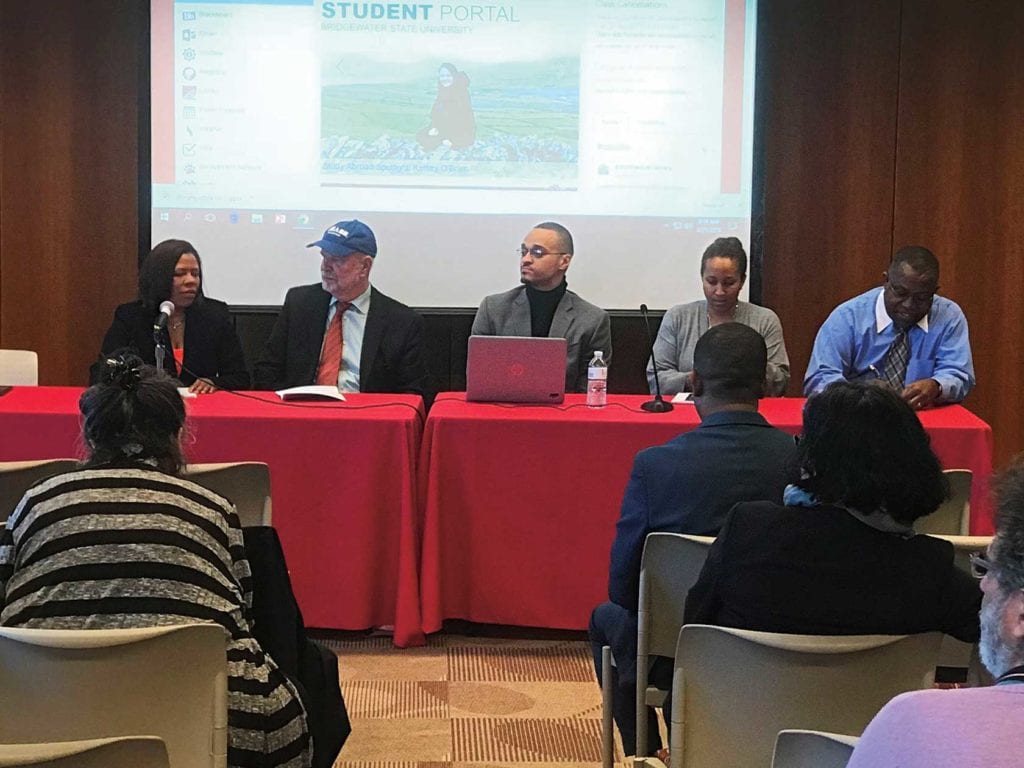
In the Cape Verdean islands, politicians borrow slogans from hip-hop artists as a means of keeping pace with local political sentiment.
In Cape Verdean neighborhoods in Lisbon, older generations of musicians are learning recording techniques from newer artists who are sampling the classic tabanka and batuca rhythms of their elders.
In the United States, where Cape Verdean musicians have made their mark in jazz, Latin music and pop, traditional mornas and coladeiras can still be heard in local communities.
For an island nation with a population smaller than that of Boston, Cape Verde’s influence on the American and world music scene has been impressive.
Last Saturday, a collection of scholars gathered to share their research and insight into Cape Verdean music and musicians during the Annual Conference on Cape Verdean and Diaspora Studies at Bridgewater State University.
Hosted by the University’s Pedro Pires Institute for Cape Verdean Studies, the conference drew academics, community activists and other luminaries to the campus for two days of forums, presentations and film screenings. Following in the tradition of the Common Threads conferences that the Cape Verdean Consulate in Boston hosted until recently, the Pedro Pires Institute conference is the largest such gathering in the world.
The session on Cape Verdean music, held Saturday, attracted scholars from UMass Dartmouth, UMass Boston, University of Texas and the University of Lisbon.
UMass Professor Ricardo Rosa tracked the development of rap kriolu, the hip-hop that has proliferated in Cape Verde over the last 20 years. In the 1990s, he said, the artists’ lyrics often critiqued the neo-liberal policies of the Movimento para a Democracia, which engaged in privatization schemes that led to public spaces ranging from beaches to universities ending up in corporate hands.
In the decades since, rap kriolu has taken on policies by both the MpD and the more socialist-leaning Party for the Independence of Cape Verde.
“The traditional music has the tendency to go one way or the other,” he said. “With rap kriolu, the critique goes both ways.”
University of Lisbon professor Otavio Raposo’s research into music and musicians among the 80,000 or so residents of Lisbon’s Cape Verdean neighborhoods delved into the intricacies of the intergenerational collaborations that occur in the neighborhood’s bars, restaurants and nightclubs, showing clips from documentary films he shot in the city.
University of Texas Rio Grande Valley professor Susan Hurley-Glowa, who has performed with the Cape Verdean band Tropical Power, spoke about the evolution of music forms from Cape Verde and how the many styles can be preserved. She noted that scholarship on Cape Verdean music has been published in the creole language that is spoken by Cape Verdeans and in Portuguese, but not in English.
The music panel was one of ten held during the conference, which took place April 20 and 21. The conference also included book presentations and a partial screening of “Storias Di Nos Muzika,” a film on Cape Verdean music produced by the Pedro Pires Institute.







